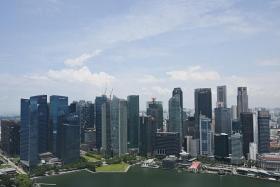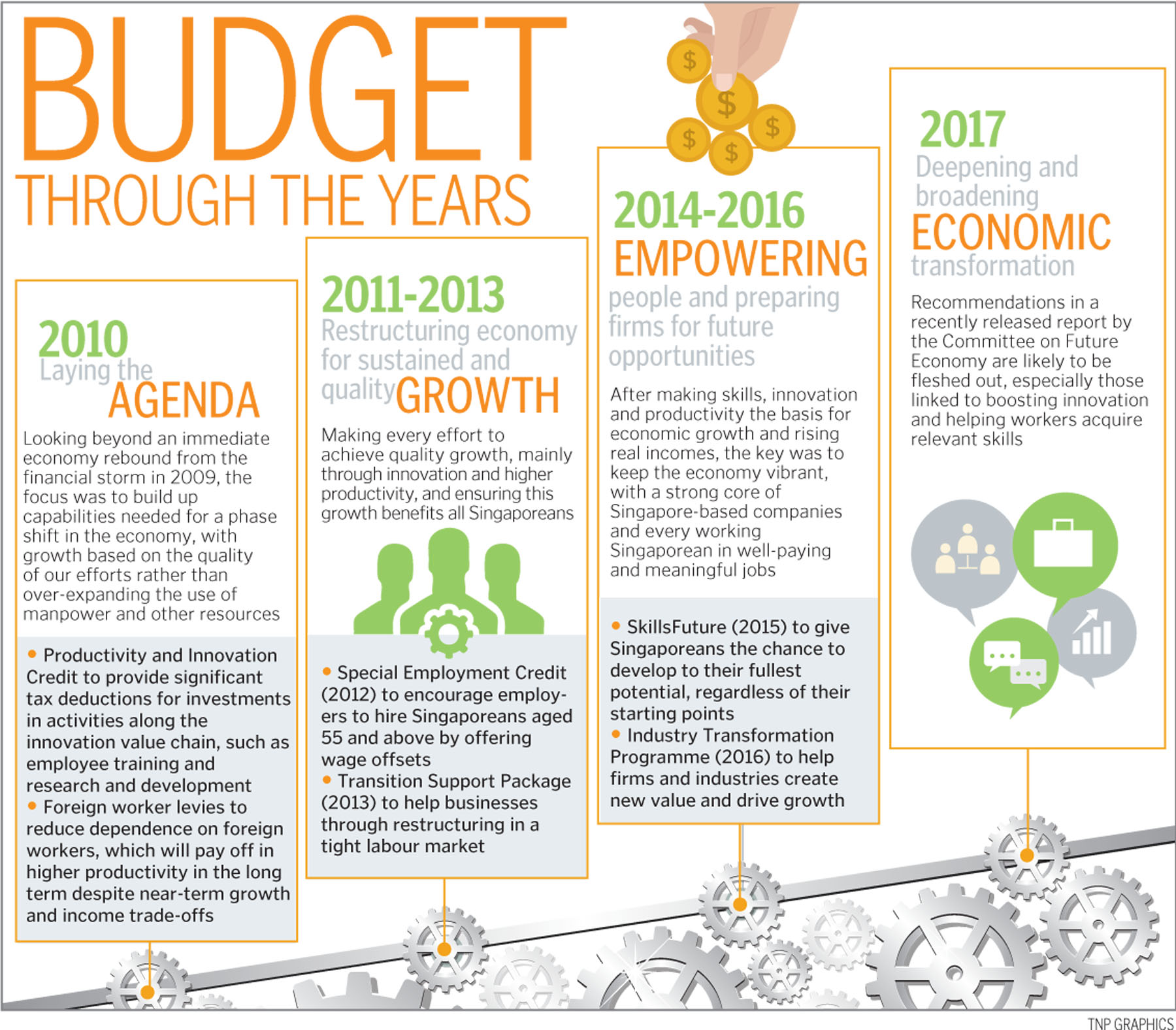Economist: Budget 2017 will remain business-friendly
Economists expect positive fiscal impulse and improvements to existing schemes in this year's Budget
Singapore may have dodged a technical recession last year, but it is not yet sunshine after the rain, economists said.
"Not only do we see few chances of a rebound in growth, we expect a further slowdown to 1.5 per cent year on year," IHS Markit economist Bernard Aw told The New Paper.
But ANZ economist Ng Weiwen expects Budget 2017, which will be unveiled on Monday, to deliver a positive fiscal impulse, which looks at how much stimulus government spending would have on economic growth.
On Friday (Feb 17), the Ministry of Trade and Industry (MTI) said the Asean economies are expected to register a modest uptick in growth this year but warned of rising political risks and economic uncertainties.
MTI expects growth this year to be at a modest pace of 1 per cent to 3 per cent.
Last year, Singapore recorded a 2 per cent growth - similar to the 1.9 per cent growth in 2015, the weakest since the global financial crisis.
OCBC economist Selena Ling predicted an uphill climb for the economy, not just in attracting foreign direct investments, but also in generating more value-added and well-paying jobs to cater to a more demanding but also ageing workforce.
Against this backdrop, concerns over job security and prospects are natural, as shown in an annual pre-budget feedback exercise done by Reach and the Finance Ministry.
The education system's lack of focus on technical skills was cited as a reason for the mismatch in job skills.
Schemes, such as the Professional Conversion Programme, are in place but economists said more can be done to help displaced PMETs (professionals, managers, executives and technicians) while encouraging them to upgrade themselves through the SkillsFuture scheme.
A temporary deferment, extension of their income tax payment or a one-off tax rebate can help lighten the burden, said DBS economist Irvin Seah.
Many Singaporeans, agreeing that training is the solution to meeting the needs of the future economy, commended SkillsFuture.
But they also asked for improvements, such as increasing the $500 credit amount.
There could be more enhancements to SkillsFuture and other existing lifelong learning programmes, said Mr Seah.
Meanwhile, the high cost of living has deterred some from starting families.
More parenthood incentives, work-life balance initiatives and fairer employment practices will be helpful.
Employers should be encouraged to assess workers based on measurable outputs instead of presenteeism, said Mr Grahame Wright, a people advisory services partner at Ernst & Young Solutions.
He told TNP: "(This) will help protect parents from being penalised by perceptions of lesser performance while they are juggling work and family demands."
There could be more subsidies on education, top-ups to various public assistance schemes as well as rebates on utilities, service and conservancy charges, said Mr Seah.
But this year's Budget is likely to remain business-friendly, continuing from last year's focus on enterprise development instead of social issues, he said.
Get The New Paper on your phone with the free TNP app. Download from the Apple App Store or Google Play Store now




